How to Take Care of Your Horse: Basic Horse Care and Maintenance Tips
As a professional horse rider and trainer with over 10 years of experience, I have come to understand the importance of proper horse care and maintenance. Horses are magnificent creatures that require love, attention, and care to thrive. Basic horse care and maintenance practices are essential to ensure that your horse remains healthy, happy, and comfortable.
Why is Horse Care Important?
Horse care is important for several reasons. Firstly, it ensures that your horse remains healthy and free from diseases. Secondly, proper horse care helps to prevent injuries and accidents. Thirdly, it enhances the bond between you and your horse. Lastly, it improves your horse’s performance and longevity.
Basic Horse Care and Maintenance Tips
Here are some essential horse care and maintenance tips that every horse owner should know:
- Provide clean water and quality food
- Ensure proper grooming
- Regular exercise and turnout
- Regular veterinary checkups and deworming
- Proper hoof care
- Provide a clean and comfortable living environment
By following these basic horse care and maintenance tips, you can ensure that your horse remains healthy, happy, and comfortable.
Understanding Basic Horse Care
As a horse owner, it is important to understand the basic care needs of your horse. Proper care ensures that your horse remains healthy, happy, and comfortable. Here are the essential care tips for your horse:
Feeding Your Horse
Horses require a balanced diet consisting of hay, grains, and fresh water. The amount of feed your horse needs depends on its age, weight, and level of activity. Provide your horse with fresh, clean water at all times.
Providing Clean Water
A horse can drink up to 10 gallons of water a day. Ensure that your horse has access to fresh, clean water at all times. Clean the water trough or bucket regularly to prevent the growth of harmful bacteria.
Grooming Your Horse
Grooming helps to keep your horse’s coat clean and healthy. Brush your horse regularly to remove dirt, loose hair, and sweat. This also helps to distribute natural oils throughout the coat, keeping it shiny and healthy.
Regular Exercise
Horses need regular exercise to stay healthy and fit. Provide your horse with a spacious paddock or pasture where it can move around freely. Take your horse for a ride or a walk regularly to keep it active and healthy.
Housing Your Horse
Horses need a safe, comfortable, and clean place to live. A stable or a barn with enough space for your horse to move around is ideal. Keep the stable or barn clean and well-ventilated to prevent the growth of harmful bacteria.
Regular Health Checkups
Regular health checkups are essential to ensure that your horse remains healthy. Schedule regular visits with a veterinarian to check for any health issues. Also, ensure that your horse’s vaccinations and deworming are up to date.
| Feeding | Providing Clean Water | Grooming | Regular Exercise | Housing | Regular Health Checkups |
|---|---|---|---|---|---|
| Provide balanced diet of hay, grains, and fresh water | Ensure access to fresh, clean water at all times | Brush regularly to remove dirt, loose hair, and sweat | Provide spacious paddock or pasture | Provide safe, comfortable, and clean stable or barn | Schedule regular visits with a veterinarian for checkups |
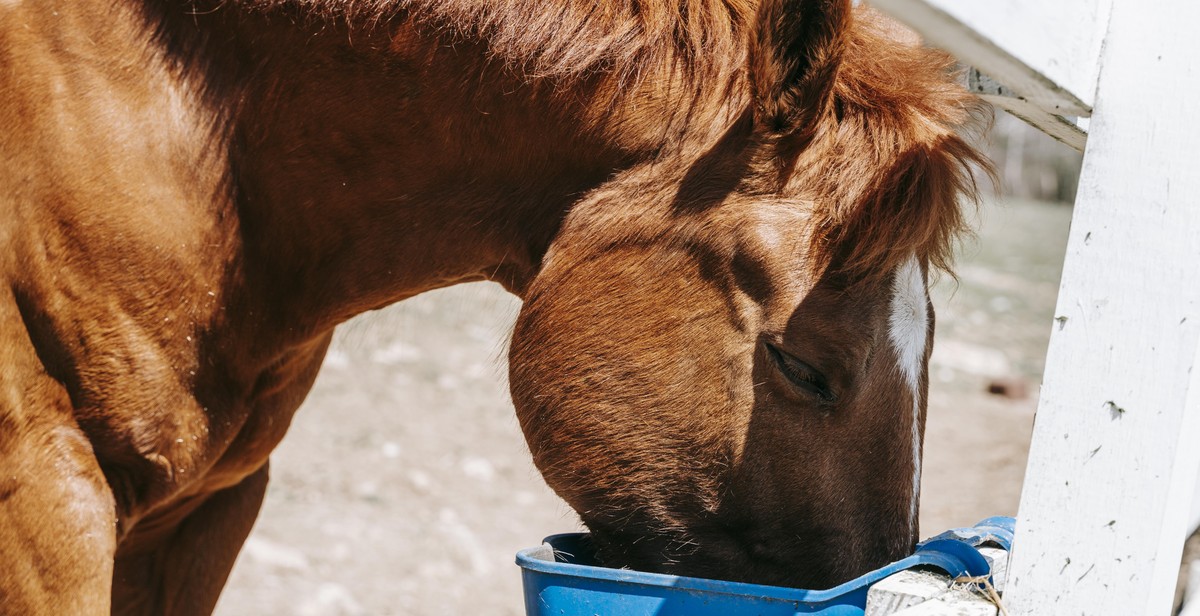
Feeding Your Horse
One of the most important aspects of basic horse care and maintenance is feeding your horse a balanced diet. Horses are herbivores and require a diet that is high in fiber and low in sugar and starch. Here are some tips for feeding your horse:
Types of Horse Feed
There are two main types of horse feed: forage and concentrates. Forage includes hay and pasture grass and should make up the majority of a horse’s diet. Concentrates include grains, such as oats and corn, and pelleted feeds that are formulated to provide additional nutrients.
When choosing a concentrate feed, it is important to select one that is appropriate for your horse’s age, weight, and activity level. Consult with a veterinarian or equine nutritionist for guidance on selecting the right feed.
Feeding Schedule
Horses should be fed at regular intervals throughout the day, with access to fresh water at all times. Most horses require feeding twice a day, with a smaller meal in the morning and a larger meal in the evening.
It is important to monitor your horse’s weight and adjust their feeding schedule accordingly. Overfeeding can lead to obesity and other health problems, while underfeeding can result in malnutrition and poor performance.
Feeding Tips
- Introduce new feeds gradually to avoid digestive upset.
- Provide plenty of fresh, clean water at all times.
- Avoid feeding your horse directly before or after exercise.
- Monitor your horse’s weight and adjust their diet as needed.
- Consult with a veterinarian or equine nutritionist for guidance on feeding your horse.
| Type of Feed | Amount to Feed |
|---|---|
| Hay | 1-2% of body weight per day |
| Grain | 1-2 pounds per feeding, up to 5 pounds per day |
| Pelleted Feed | 1-2 pounds per feeding, up to 5 pounds per day |
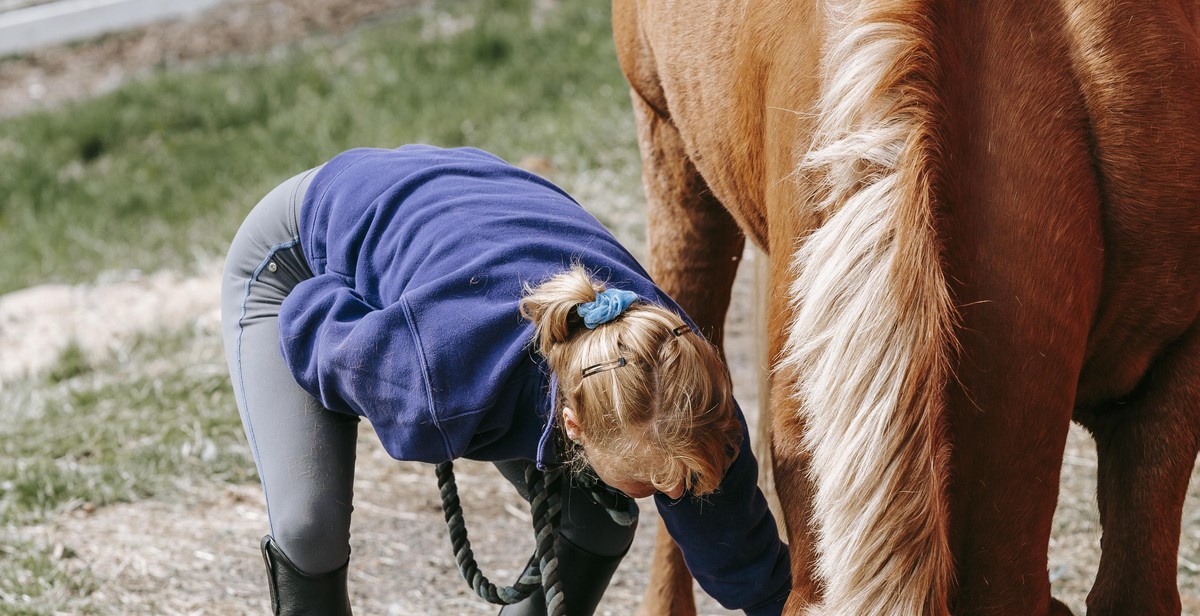
Grooming Your Horse
Grooming your horse is an essential part of basic horse care and maintenance. Not only does it keep your horse looking good, but it also helps keep them healthy and comfortable. Here are some tips on grooming your horse:
Tools Needed for Grooming
Before you start grooming your horse, you will need some essential tools. These include:
- Curry comb
- Body brush
- Mane and tail comb
- Hoof pick
- Grooming mitt
- Sweat scraper
Make sure your tools are clean and in good condition before you start grooming your horse.
Grooming Schedule
How often you groom your horse will depend on their living conditions and how much they are exercised. As a general rule, horses should be groomed at least once a day. If your horse is kept in a stall, they may need to be groomed more frequently to prevent skin irritations and other health issues.
Grooming Tips
When grooming your horse, start with the curry comb to remove any dirt and loose hair. Use a circular motion, being careful not to apply too much pressure. Next, use the body brush to remove any remaining dirt and to bring out the natural shine in your horse’s coat.
Use the mane and tail comb to untangle any knots or mats in your horse’s mane and tail. Be gentle, as pulling too hard can be painful for your horse.
After grooming your horse, use the hoof pick to clean their hooves. This will help prevent infections and other hoof problems. Finally, use the sweat scraper to remove any excess water after bathing your horse.
Grooming your horse is an important part of basic horse care and maintenance. By following these tips and maintaining a regular grooming schedule, you can help keep your horse healthy and looking their best.
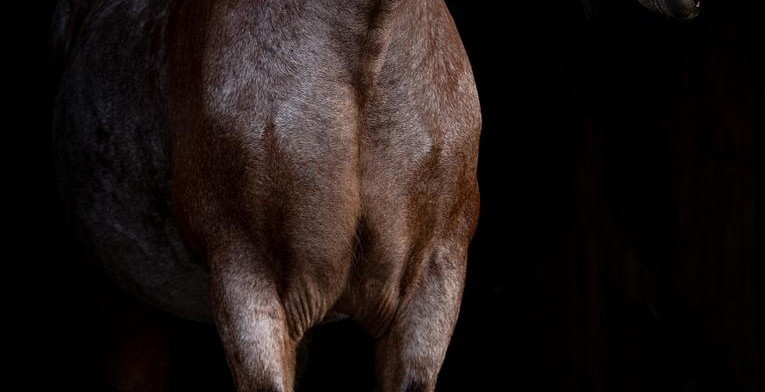
Housing Your Horse
Housing your horse is an essential part of basic horse care and maintenance. There are different types of housing options available for horses, and it’s important to choose the one that suits your horse’s needs and your budget.
Types of Horse Housing
The most common types of horse housing include:
- Stalls: Stalls provide individual housing for horses and are commonly found in barns. They offer protection from harsh weather conditions and allow for easy feeding and cleaning.
- Pastures: Pastures provide open spaces for horses to graze, run, and socialize. They are ideal for horses that require more exercise and fresh air.
- Run-ins: Run-ins are three-sided shelters that offer protection from the elements and allow horses to move in and out as they please.
Creating a Comfortable Living Space
Regardless of the type of housing you choose, it’s important to create a comfortable living space for your horse. Here are some tips:
- Provide adequate space for your horse to move around and lie down comfortably.
- Ensure proper ventilation to prevent respiratory problems.
- Use appropriate bedding such as straw, shavings, or sawdust to keep the stall dry and comfortable.
- Provide fresh water and quality hay or feed for your horse to eat.
Cleaning and Maintenance Tips
Regular cleaning and maintenance are necessary to keep your horse’s housing clean and safe. Here are some tips:
- Clean stalls, pastures, and run-ins regularly to prevent the buildup of manure and urine.
- Remove any hazardous objects that could injure your horse.
- Maintain proper drainage to prevent water accumulation.
- Inspect fencing and housing regularly for any signs of damage or wear and tear.
Proper horse housing is essential for the health and well-being of your horse. By choosing the right type of housing, creating a comfortable living space, and maintaining it regularly, you can ensure that your horse stays happy and healthy.
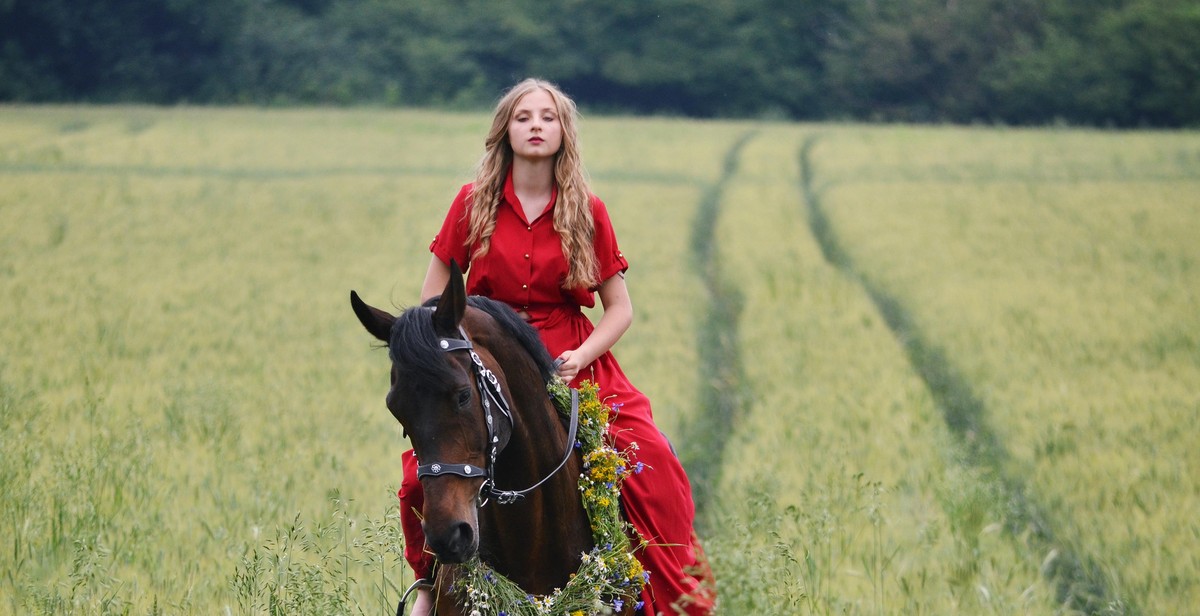
Common Health Issues in Horses
As a horse owner, it’s important to keep an eye out for any signs of illness or discomfort in your horse. Here are some common health issues that horses can experience:
Colic
Colic is a general term used to describe abdominal pain in horses. It can be caused by a variety of factors including changes in diet, dehydration, and intestinal blockages. Signs of colic include restlessness, pawing at the ground, sweating, and a lack of appetite. If you suspect your horse is experiencing colic, contact your veterinarian immediately.
Lameness
Lameness refers to any abnormality in a horse’s gait or movement. It can be caused by a variety of factors including injuries, arthritis, and infections. Signs of lameness include limping, favoring one leg, and a reluctance to move. If you suspect your horse is experiencing lameness, contact your veterinarian for an evaluation.
Respiratory Issues
Horses can experience a variety of respiratory issues including allergies, infections, and asthma. Signs of respiratory issues include coughing, wheezing, and difficulty breathing. If you suspect your horse is experiencing respiratory issues, contact your veterinarian for an evaluation.
Parasites
Parasites can cause a variety of health issues in horses including weight loss, anemia, and colic. It’s important to have your horse on a regular deworming schedule to prevent parasites from taking hold.
Preventative Measures
Preventative measures can go a long way in keeping your horse healthy. Make sure your horse has access to clean water and a balanced diet. Keep their living area clean and free of manure and other debris. Regular veterinary check-ups and vaccinations can also help prevent health issues from arising.
| Common Health Issues | Signs |
|---|---|
| Colic | Restlessness, pawing at the ground, sweating, and a lack of appetite |
| Lameness | Limping, favoring one leg, and a reluctance to move |
| Respiratory Issues | Coughing, wheezing, and difficulty breathing |
| Parasites | Weight loss, anemia, and colic |
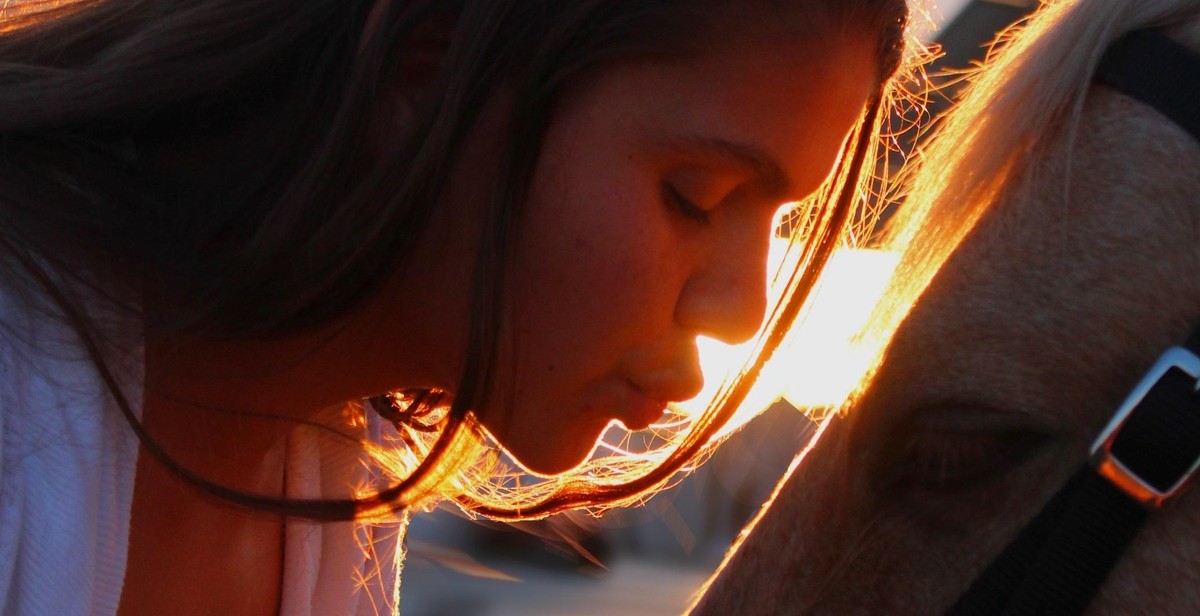
Conclusion
As a horse owner, it is your responsibility to ensure that your horse is well taken care of. Basic horse care and maintenance can go a long way in ensuring your horse is healthy and happy. From providing proper nutrition to regular grooming and exercise, every aspect of horse care is important.
Remember to always keep your horse’s living space clean and well-maintained, and to check for any signs of illness or injury regularly. By taking a proactive approach to your horse’s health, you can prevent more serious issues from developing down the line.
Final Thoughts
Taking care of a horse can be a challenging but rewarding experience. With the right knowledge and tools, you can provide your horse with the care they need to thrive. Remember to always consult with a veterinarian or equine specialist if you have any questions or concerns about your horse’s health.
By following the basic horse care and maintenance tips outlined in this article, you can ensure that your horse remains healthy, happy, and well-cared for for years to come.
| Key Takeaways: |
|
Remember that every horse is unique, and may require individualized care. By paying attention to your horse’s specific needs and preferences, you can provide them with the best possible care and build a strong bond that will last a lifetime.
